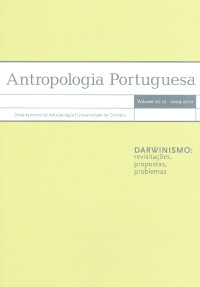Please use this identifier to cite or link to this item:
https://hdl.handle.net/10316.2/28692| Title: | Dar tempo ao tempo: o estudo do comportamento nas ciências do artificial e o problema das escalas temporais | Authors: | Silva, Porfírio | Keywords: | Sciences of the Artificial;New Robotics;Evolutionary Robotics;Developmental Robotics;language for robots;timescales;Ciências do Artificial;Nova Robótica;Robótica Evolutiva;Robótica do Desenvolvimento;linguagem para robots;escalas temporais | Issue Date: | 2010 | Publisher: | CIAS - Centro de Investigação em Antropologia e Saúde | Abstract: | This paper suggests that the experimental dimension of the Sciences
of the Artificial can contribute to the understanding of the dynamical interactions
between processes taking place at different time scales in the history of life, such
as the evolution of a species, the development of individuals, and the cultural
evolution of a society. This suggestion is substantiated with examples taken from
several lines of research within the framework of the Sciences of the Artificial, a constellation of scientific approaches seeking to make machines built by humans
capable of a number of behaviours previously believed to be exclusive to human
beings or other animals. The first example taken is Evolutionary Robotics, which
uses techniques of artificial evolution to design autonomous robots. The second
example is Developmental Robotics, which attempts to implement in robotic
platforms some aspects of the complex processes that lead, in species that reproduce
sexually, from a zygote to an adult individual. The third example is a series
of experiments with the emergence of symbolic language in robots. A reflection
on these examples leads to the identification of a methodological problem in the
sciences of the artificial: the problem of time scales. We suggest that, to advance
the understanding of this problem, the sciences of the artificial would benefit of
seeking inspiration in ethology. Neste texto sugere-se que as Ciências do Artificial podem contribuir com a sua dimensão experimental para o avanço da compreensão da dinâmica das interacções entre processos da história da vida que têm lugar em diferentes escalas temporais, como sejam a evolução de uma espécie, o desenvolvimento de indivíduos dessa espécie e a evolução cultural de uma sociedade. Para substanciar essa sugestão apresentam-se exemplos de trabalhos desenvolvidos no âmbito das Ciências do Artificial, uma constelação de abordagens científicas que procuram realizar em máquinas construídas por humanos certos comportamentos definidas como objectos de atenção por parecerem típicas dos próprios humanos ou de outros animais. Os exemplos apresentados são: primeiro, a Robótica Evolutiva, que procura obter robots que resultem de processos de evolução artificial; segundo, a Robótica do Desenvolvimento, que tenta implementar em plataformas robóticas alguns aspectos do complexo de processos que levam, em espécies que se reproduzem sexualmente, do zigoto ao indivíduo adulto; terceiro, experiências com a emergência de linguagens simbólicas em robots. A consideração destes exemplos conduz à identificação de um problema metodológico nas ciências do artificial: o problema das escalas temporais. Sugerimos que, para avançar na compreensão desse problema, as ciências do artificial beneficiariam de procurar inspiração na etologia. |
URI: | https://hdl.handle.net/10316.2/28692 | ISSN: | 2182-7982 | DOI: | 10.14195/2182-7982_27_11 | Rights: | open access |
| Appears in Collections: | Antropologia Portuguesa |
Files in This Item:
| File | Description | Size | Format | |
|---|---|---|---|---|
| ap26-27_artigo12.pdf | 1.82 MB | Adobe PDF |  |
Items in DSpace are protected by copyright, with all rights reserved, unless otherwise indicated.
